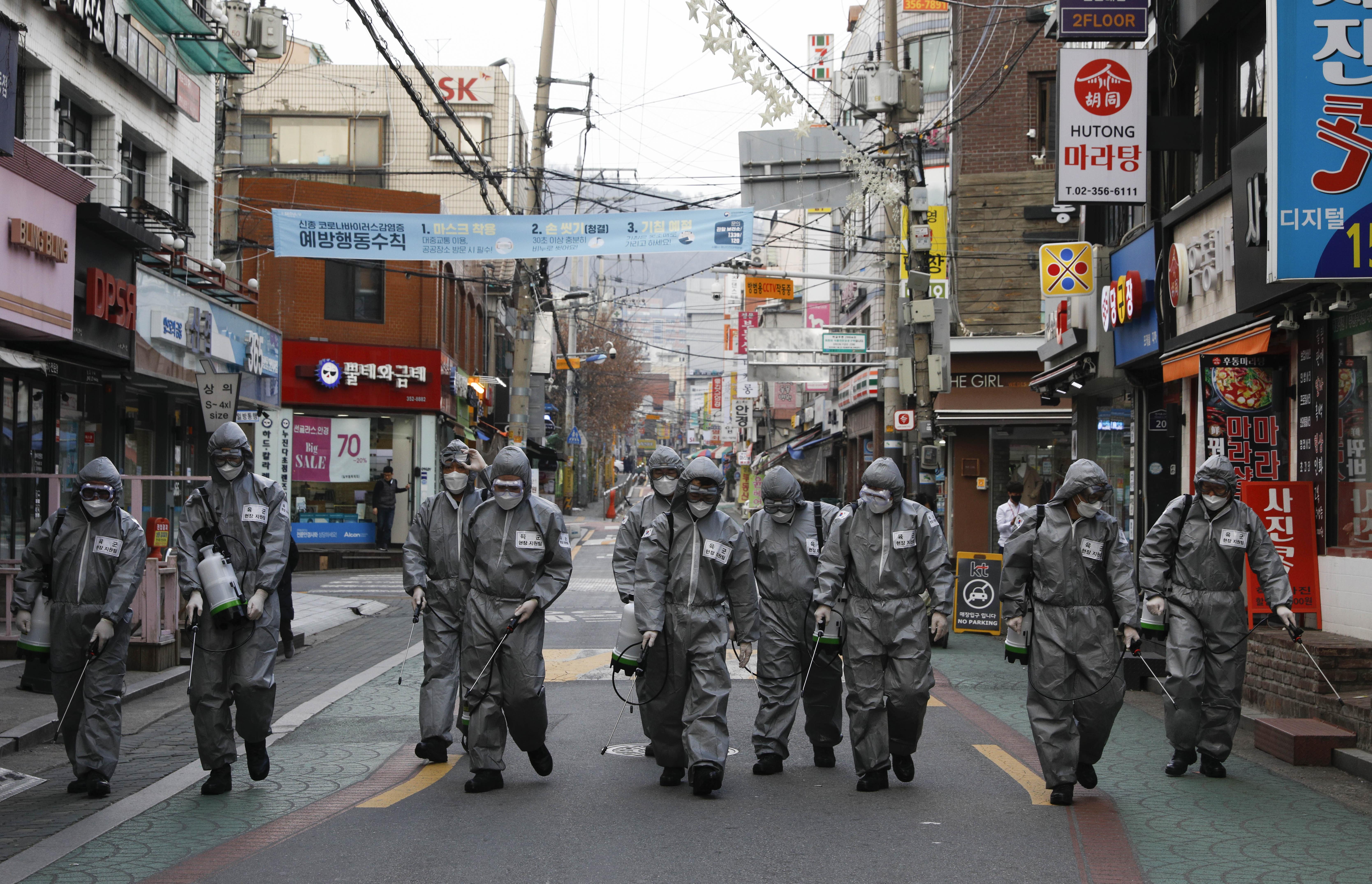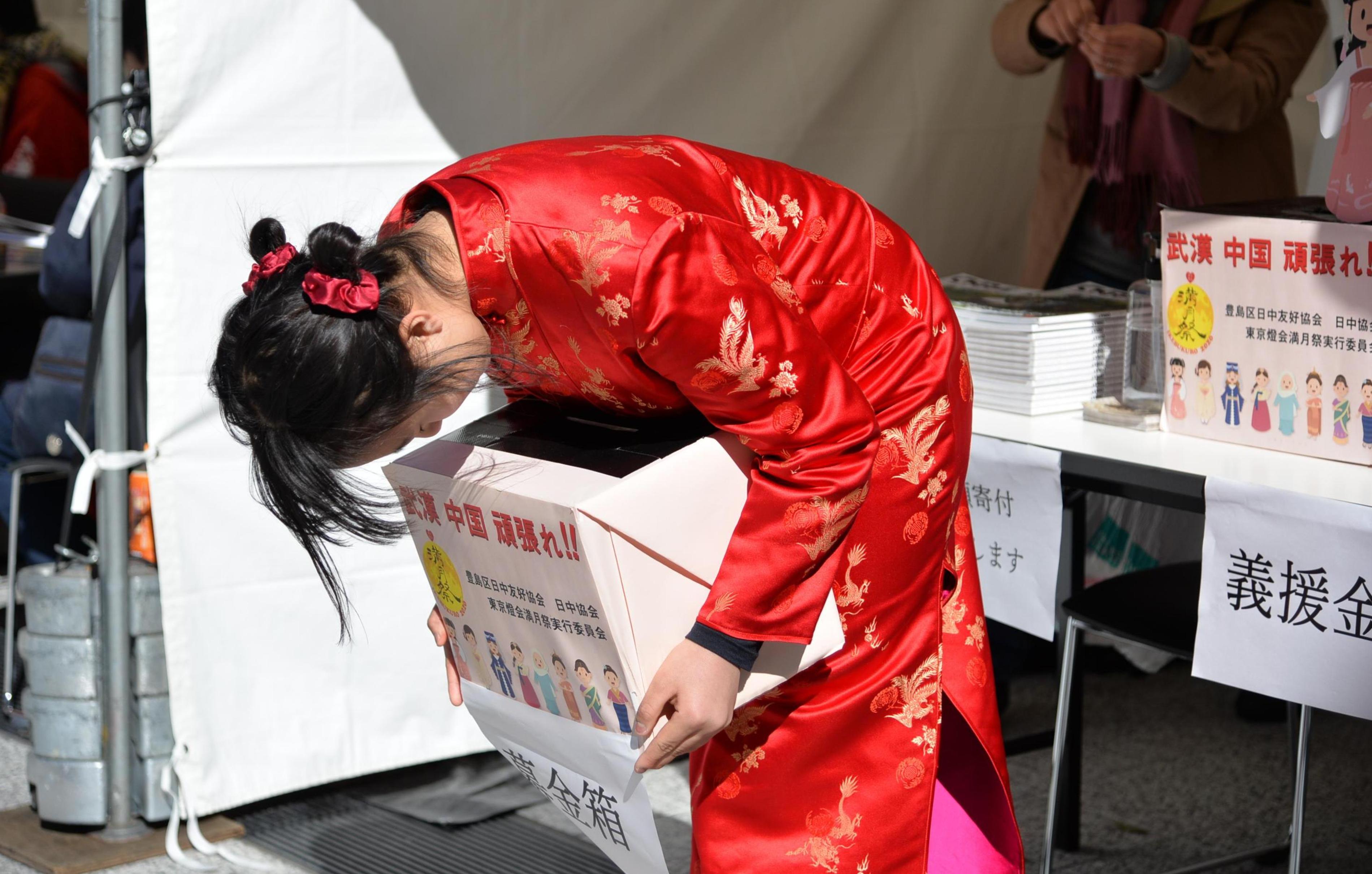The epidemic knows no boundaries, and neither do efforts to combat it.
With a shared goal of overcoming the epidemic, China and its two close neighbors have set a vivid example of cooperating during a difficult time.
by Xinhua writers Lu Rui, Ye Shan, Zhang Jing
SEOUL, March 5 (Xinhua) -- With comprehensive and rigorous prevention and control measures, China's COVID-19 cases are declining and more people are returning to work.
But cases continue to grow rapidly outside China, with major outbreaks in neighboring South Korea and Japan, raising growing concerns in the two northeast Asian countries.
China, which has received donations of much-needed supplies and heart-warming well-wishes from countries including South Korea and Japan at the height of its epidemic situation, is now giving back like a real friend in need to the two neighbors so as to help them get through hard times.
WORSENING SITUATION
South Korea reported its first coronavirus case on Jan. 20. Nearly a month after, the number of infections stood at 31. The situation then quickly worsened, with several cases linked to a religious group in the metropolis of Daegu, a city roughly 300 km southeast of the capital Seoul.
Infections in South Korea soared over the past 15 days and the country has raised its four-tier virus alert to the highest "red" level.
By Thursday morning, South Korea's total coronavirus infections spiked to 5,766, the highest national count outside China. Some 90 percent of cases were reported in Daegu and its surrounding North Gyeongsang province.

South Korean soldiers disinfect the street in Seoul, South Korea, March 4, 2020. (NEWSIS/Handout via Xinhua)
Japan is also bearing the brunt of the COVID-19 crisis. As of Thursday morning, the country's confirmed coronavirus infections rose above 1,000, with 700 from the Diamond Princess cruise ship quarantined in the port city of Yokohama.
Other small-scale infections have occurred in Japan, say the authorities. In the northernmost prefecture of Hokkaido, the governor has declared a state of emergency and urged residents to remain indoors over the weekend.
As part of a new emergency package to tackle the worsening situation, the Japanese government will use reserve funds worth over 270 billion yen (2.5 billion U.S. dollars) in around 10 days to help cushion the fallout from the spread of the epidemic, Prime Minister Shinzo Abe said Saturday.
A government panel comprising medical experts has warned that the next week or two would be "critical" to contain the virus' spread.

A pedestrian wearing a face mask passes by an electronic countdown timer for the Olympic Games in Tokyo, Japan, Feb. 25, 2020. (Xinhua/Du Xiaoyi)
HELPING HAND
When the coronavirus first broke out in the central Chinese city of Wuhan, Japan and South Korea were among the earliest to extend a helping hand. Government agencies, enterprises and institutions from both countries offered assistance to China.
On Feb. 10, the ruling Liberal Democratic Party (LDP) of Japan decided to deduct 5,000 yen (45.43 dollars) from the March salary of every LDP parliamentarian and donate it to support China's fight against the outbreak, a sum totaling 2 million yen (18,170 dollars).
"For Japan, when it sees a virus outbreak in China, it is like seeing a relative or neighbor suffering. Japanese people are willing to help China and hope the outbreak will pass as soon as possible," said Toshihiro Nikai, secretary-general of the LDP.
A Chinese-language poetic verse on the boxes of mask donations by the Japanese HSK Bureau caught the eyes of Chinese netizens and went viral on social media. The phrase written in eight Chinese characters conveyed the heartfelt support of the Japanese people.
"Although we are in different places, we are under the same sky," read the verse that stemmed from an ancient poem depicting the long-lasting friendship between China and Japan.

A Japanese girl wearing a red Chinese cheongsam bows deeply to passers-by with a donation box in hands to raise money to help those in China affected by the virus on the Chinese Lantern Festival in Tokyo, Japan, on Feb. 8, 2020. (Photo by Zhang Huiqing/Xinhua)
During the Chinese Lantern Festival in February, a Japanese girl wearing a red Chinese cheongsam stood in a busy street in Tokyo. She held a donation box and bowed deeply to passersby to raise money for those in China affected by the disease, an act that pulled the heart strings of millions of people on social media.
Meanwhile, South Korea's government decided to extend emergency assistance worth 5 million U.S. dollars to China, said the Chinese Embassy in South Korea. Donations of face masks, protective suits and goggles were provided by the South Korean Alumni Association in China.
A number of South Korean conglomerates including Samsung, Hyundai, SK and LG contributed their share to China's fight against the new virus, according to the Chinese Embassy.
"South Korea and China are close neighbors, and helping one's neighbor is helping oneself," South Korean President Moon Jae-in has said.
SHARED COMMUNITY
Following the resolute measures taken to prevent the spread of and control COVID-19, the situation in China has stabilized, with new cases declining nationwide.
However, with infections in Japan and South Korea continuing to surge, China hasn't hesitated to offer assistance back. As one Chinese saying goes, the grace of dripping water should be reciprocated by a gushing spring.
After learning that Japan was running short, China donated a batch of test kits to the country's National Institute of Infectious Diseases, according to the Chinese Embassy in Japan.
Chinese nationals living in Japan distributed masks -- which they went to great lengths to collect -- to pedestrians, expressing gratitude to the Japanese people for their help during China's own crisis.

A member (R) of "Mask Panda Action Team", a volunteer group initiated by local Chinese community and later joined by more people in Japan, hands out masks to local people to help with the prevention of the novel coronavirus disease in Tokyo, Japan, Feb. 29, 2020. (Xinhua/Du Xiaoyi)
A Chinese girl named Tiantian held a cardboard box with the Japanese words "Gratitude from Wuhan" written on it and distributed masks on the street of Tokyo.
"I hope that by handing out the masks, I can call attention to the severity of the COVID-19 outbreak and draw the attention of the international community to the situation in Japan," Tiantian told Xinhua after garnering plenty of attention online.
In late February the Chinese Embassy in South Korea donated around 25,000 medical masks to the city of Daegu to help it cope with the deadly coronavirus.
The Chinese port city of Shanghai delivered a total of 500,000 masks to the worst-hit areas in South Korea, including Daegu city and North Gyeongsang province. The Chinese Chamber of Commerce in South Korea on Wednesday donated 50 million won (42,000 dollars) in aid to Daegu.

Photo taken on Feb. 27, 2020 shows boxes of masks donated to Daegu by the Chinese Embassy, in Seoul, South Korea. (Chinese Embassy in South Korea/Handout via Xinhua)
The epidemic knows no boundaries, and neither do efforts to combat it.
With a shared goal of overcoming the epidemic, China and its two close neighbors have set a vivid example of cooperating during a difficult time.
The ground becomes firm after rain, says one proverb. The three-pronged battle against the coronavirus reflects a desire to jointly build a community with a share future.
"It is hoped that the joint efforts of the three countries to fight the novel coronavirus can deepen three-way cooperation in other areas," said Cao Jing, secretary-general of the Trilateral Cooperation Secretariat, an intergovernmental body to facilitate cooperation among the three neighbors.
"All three countries are now experiencing difficulty," Cao said. "The virus is the common enemy of humankind, and only through solidarity and cooperation can we overcome the challenge together." (Video reporters: Deng Min, Guo Wei,Tian Ming, Yin Xiaosheng, Di Chun; Video editor: Zhang Yichi.)



